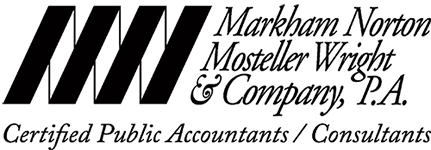Individual Retirement Accounts Can Be Important Tools in Retirement Planning
It is never too early to begin planning for retirement. Individual retirement accounts provide tax incentives for people to make investments that can provide financial security when they retire. These accounts can be with a bank or other financial institution, a life insurance company, mutual fund or stockbroker.
A traditional IRA is the most common type of individual retirement account. IRAs let earnings grow tax deferred. Individuals pay taxes on investment gains only when they make withdrawals. Depositors may be able to claim a deduction on their individual federal income tax return for the amount they contributed to an IRA.
What to consider before investing in a traditional IRA
- A traditional IRA is a tax-advantaged personal savings plan where contributions may be tax deductible.
- Generally, the money in a traditional IRA isn’t taxed until it’s withdrawn.
- There are annual limits to contributions depending on the person’s age and the type of IRA.
- When planning when to withdraw money from an IRA, taxpayers should know that:
- They may face a 10% penalty and a tax bill if they withdraw money before age 59½ unless they qualify for an exception.
- Usually, they must start taking withdrawals from their IRA when they reach age 73 (age 72 if they turned 72 in 2022). For tax years 2019 and earlier, that age was 70½.
- Special distribution rules apply for IRA beneficiaries.
Differences between a Roth and a traditional IRA
A Roth IRA is another tax-advantaged personal savings plan with many of the same rules as a traditional IRA, but there are exceptions:
- A taxpayer can’t deduct contributions to a Roth IRA.
- Qualified distributions are tax free.
- Roth IRAs don’t require withdrawals until after the death of the owner.
Other types of IRAs
- Simplified Employee Pension – A SEP IRA is set up by an employer. The employer makes contributions directly to an IRA set up for each employee.
- Savings Incentive Match Plan for Employees – A SIMPLE IRA allows the employer and employees to contribute to an IRA set up for each employee. It is suited as a start-up retirement savings plan for small employers not currently sponsoring a retirement plan.
- Payroll Deduction IRA – Employees set up a traditional or a Roth IRA with a financial institution and authorize a payroll deduction agreement with their employer.
- Rollover IRA – The IRA owner receives a payment from their retirement plan and deposits it into an IRA within 60 days.
More information:
- Publication 590-A, Contributions to Individual Retirement Arrangements
- Publication 590-B, Distributions from Individual Retirement Arrangements
- Topic No. 557, Additional Tax on Early Distributions from Traditional and Roth IRAs
- Topic No. 413, Rollovers from Retirement Plans
- Topic No. 451, Individual Retirement Arrangements
IRS Tax Tip: 2023-116
___________________________________________
Our firm provides the information on our blog/vlog for general guidance only, and does not constitute the provision of legal advice, tax advice, accounting services, investment advice, or professional consulting of any kind. The information provided herein should not be used as a substitute for consultation with professional tax, accounting, legal, or other competent advisors. Before making any decision or taking any action, you should consult a professional advisor who has been provided with all pertinent facts relevant to your particular situation. Tax articles on this website are not intended to be used, and cannot be used by any taxpayer, for the purpose of avoiding accuracy-related penalties that may be imposed on the taxpayer. The information is provided “as is,” with no assurance or guarantee of completeness, accuracy, or timeliness of the information, and without warranty of any kind, express or implied, including but not limited to warranties of performance, merchantability, and fitness for a particular purpose.


